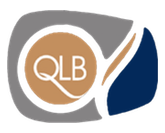“Man is born free and everywhere he is in chains.” — Jean-Jacques Rousseau
The opening sentence of The Social Contract, by revolutionary thinker Jean-Jacques Rousseau, is still just as pertinent today as it was in the 18th century. The book highlights man’s journey from a state of autonomy to the modern condition, which is arguably dominated by a reign of inequality and dependency that not only destroys man’s original happiness and freedom, but also results in the “right of the strongest”.
Rousseau believed that the only thing that made humans different from animals is free will, which is placed in danger whenever man enters into society. He, therefore, believed that only the general will — which is to say general interest as opposed to private interest — allows us to regain our freedom.
This concept that general interest should prevail over individual interest is a particularly apt reflection this month, as we prepare for Freedom Day in South Africa on 27th April. This public holiday is celebrated annually on the date when South Africa’s first democratic election was held in 1994, after almost five decades of white-minority rule.
Freedom Day marks the achievement of democracy, and it also pays tribute to those who fought for the freedom of all citizens and challenged the laws of apartheid. The Freedom Charter affirmed “that South Africa belongs to all who live in it, black and white, and that no government can justly claim authority unless it is based on the will of the people”. A non-racial constitution eventually came into effect on 27th April 1994 when the whole nation finally had the freedom to cast their votes.
The days of apartheid are thankfully behind us, but in an article published by the Huffington Post, it has been argued that “the apartheid we face today is not a political system, but an economic one.”
The next phase of the struggle is to achieve economic freedom and equality, which needs to be backed by governmental policies and programmes if we are to conquer the abject poverty and corruption that is sadly so prevalent in today’s South Africa. This type of independence now needs to be won, and Freedom Day can be seen as a catalyst for development if conscious efforts are made to encourage what Rousseau referred to as the general will.
The dream of financial freedom may mean different things to different people. For some, the focus may be on being debt-free with a secure home to live in. While for others, it may mean having emergency savings to protect family and a retirement fund to open doors later in life. Financial freedom is personal. However, whether it is the freedom to respond to the needs of others generously, or the freedom to choose a career you love without worrying about money, the common thread is that being financially independent gives you options.
Here are 8 behaviours to becoming financially free this Freedom Day:
- Make a commitment to change and make today the day you take control of your financial future.
- Take a good look at your spending habits, debt and credit history. If you are living above your means, work out by how much you’re overspending each month and whether it’s actually necessary. Recognise and assess your spending habits — and the beliefs behind them — then clean up your finances and pay off any debts so that you can start building a foundation for wealth that will last. Seek the help of a professional behavioural coach if need be.
- Come up with a financial game plan and timeline. Set yourself achievable financial goals, and consider using a money management app to help you on your way.
- Cut your spending by simply changing some of your habits or elements of your lifestyle. For example, try cooking at home rather than ordering in or eating out, and enjoy the great outdoors rather than splashing heaps of cash in a bar. It’s very hard to build wealth if you live paycheck to paycheck, so it’s important to budget to get on the right track.
- Start building an emergency fund by working up from a simple goal, such as saving enough for what you pay for electricity each month. Anything is better than nothing. Just don’t be deterred if an unforeseeable event occurs that sets you back financially and prevents you from reaching a monthly target.
- Be proactive in your journey to financial independence by educating yourself financially. Take the time to review and understand your finances, read financial blogs, and find sources of financial inspiration. You may even wish to follow some financial gurus on Twitter, or participate in chats, such as #creditchat and #WBchat. It’s important to learn about your investment options (and know what’s out there beyond retirement accounts), so don’t hesitate to arrange a meeting if you ever wish to discuss them in more depth.
- Give yourself time to reach your goals, and develop some good habits on the journey. If you plan for the future and maximise tax benefits while you’re young, you can really benefit from the powers of compound interest, so the sooner you start investing, the more time your money has to grow. It’s important to set realistic goals and stick to them, as achieving financial security is a process.
- Although it is arguably important to pay yourself first in a developing country like South Africa, where there is little by means of social welfare structures, don’t forget to give back by helping others to reach their goals once you have found a sound financial footing. This could mean donating a bit of cash to help someone reach a savings goal, or keeping a friend on track with their debt repayments. There is more to true wealth than simply retiring early or buying a yacht. Financial freedom arguably means being able to help others — whether this means setting up a trust fund for your children, donating to a local homeless shelter, or mentoring someone who’s in need of your expertise.
This Freedom Day, let us strive together for economic empowerment and development, as independence in this regard will benefit all citizens and allow us to move forward as a nation.

